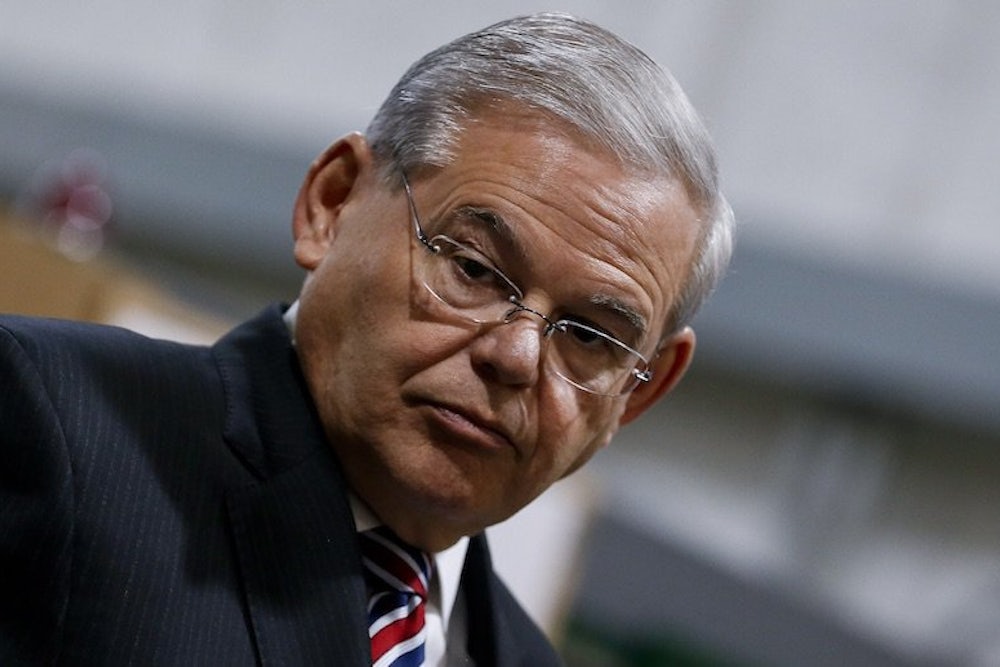No cameras are allowed inside the main Supreme Court chamber, but on Wednesday, a group of activists—for the second time this year—evaded tight security controls and snuck one in to record themselves causing disorder in the court. Their goal: Decry two of the court's most controversial rulings on campaign finance, Citizens United v. FEC and McCutcheon v. FEC, which have paved the way for powerful donors and corporations to influence elections.
"Justices, is it not your duty to protect our right to self-government?" a protester is heard yelling in a video posted on YouTube. "Reverse McCutcheon. Overturn Citizens United. One person, one vote." Court police escorted her out, followed by other protesters, including a man chanting, "We who believe in freedom shall not rest."
Chief Justice John Roberts was not impressed. SCOTUSblog's Lyle Denniston, one of the few reporters at the scene, noted he grew impatient and later said, "Oh please," on top of threatening contempt sanctions against the protesters.
Say what you will of the activists' stunt or the chief's reaction—because really, no protest in the world will ever overturn a Supreme Court precedent. But consider what Roberts himself proclaimed in McCutcheon, which turned one year old today: "Spending large sums of money in connection with elections, but not in connection with an effort to control the exercise of an officeholder's duties, does not give rise to quid pro quo corruption. Nor does the possibility that an individual who spends large sums may garner influence over or access to elected officials."
McCutcheon invalidated something very specific—the limit on the total amount a person can give to all federal candidates during a two-year election cycle—but Roberts didn't stop there. Time and again he kept singling out blatant quid pro quo arrangements as the onlything Congress could regulate. Not so with meager attempts to "prevent corruption" or curbing "the appearance of mere influence and access." Those things aren't as big a deal under the Constitution. Only tit-for-tat corruption is.
Compare that to the other case the protesters targeted, 2010's Citizens United, a ruling as grand as it was shocking for the dearth of evidence on which it rested: "We now conclude that independent expenditures, including those made by corporations, do not give rise to corruption or the appearance of corruption." The court went on: "The appearance of influence or access ... will not cause the electorate to lose faith in our democratic order."
But it turns out corruption, appearances, and influence-peddling are all at the crux of federal charges against New Jersey Senator Bob Menendez. He was indicted Wednesday on several counts of bribery and other offenses, stemming from an allegedly cozy relationship with Salomon Melgen, a Florida ophthalmologist and longtime friend who is accused of giving lavish gifts to the senator. These included a trip to a luxury hotel in Paris, a stay at an upscale villa in the Dominican Republic, contributions to a legal-defense fund, and more than $1 million in donations to various political action groups supporting Democratic candidates—all in exchange for political favors for Melgen, his business interests, and his numerous girlfriends.
Whether these salacious allegations stick or lead to some kind of plea deal will soon be decided; Menendez pled "not guilty" on all charges Thursday. But a sizeable contribution listed in the indictment calls into question the Supreme Court's extreme faith that large sums of money not directly given to a candidate fail to amount to corruption.
According to prosecutors, Melgen, through his own company, contributed $600,000 to a political action committee aimed at helping Democrats retain control of the Senate. That's all well and good under Citizens United,except Melgen allegedly earmarked the money so it went directly to the Menendez re-election campaign. That's also kosher under campaign regulations, except the indictment alleges Menendez "sought and received" the donation—comprised of two checks for $300,000 each, sent to the super PAC in exchange for Menendez's assistance in resolving a Medicare-related dispute. Interestingly, the indictment notes that Melgen cut one of the checks on the same day he attended an annual fundraiser Menendez hosted.
The legal process will determine the extent to which the alleged favors and contributions are related. But even if they weren't and the case went away, the Menendez indictment undermines the Supreme Court's facile conclusion that merely spending large sums of money—absent a clear showing of quid pro quo—isn't enough to prove that corruption has taken hold. Or the notion that the mere appearance of influence and access to elected leaders fails to be an interest compelling enough to require strong campaign-finance laws—the kind that governs how big donors and big money behave each election cycle.
Chief Justice Roberts may not be too pleased with the recent protests and security breaches at the Supreme Court, but the Menendez case opens the door for some introspection on how recent campaign-finance rulings are reshaping who calls the shots in our democratic order.
